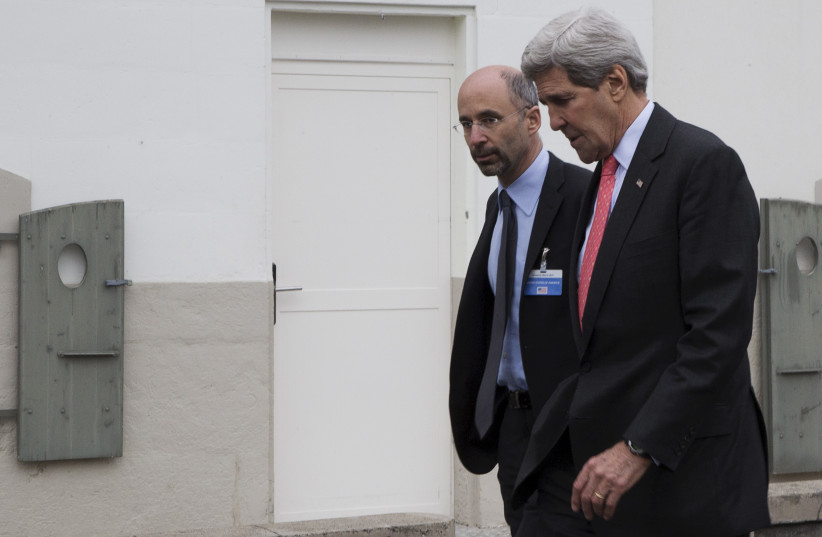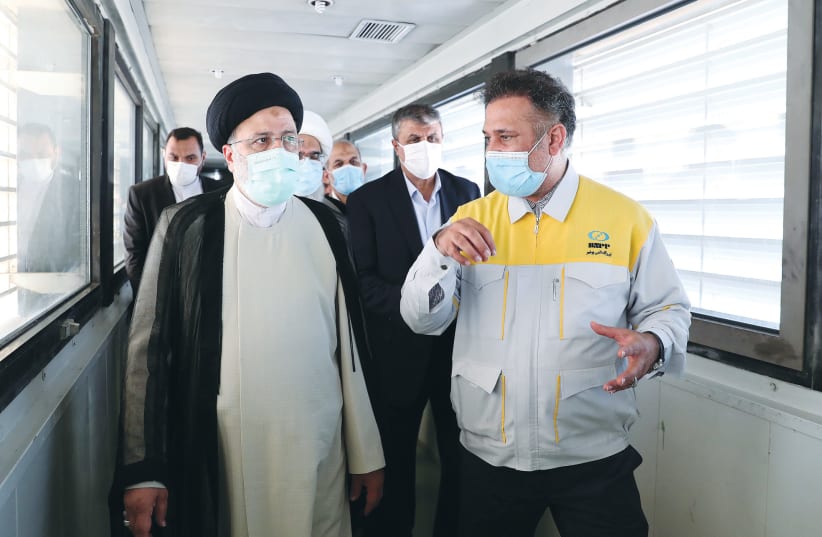Stage one of the Biden administration waiting for Tehran to talk has concluded.
The patience of the US with Iranian procrastination from returning to nuclear talks is up and it will start exerting pressure along with global partners in “the coming days and weeks” to get Iran back to the negotiating table, was a major takeaway from a press briefing by US Iran envoy Rob Malley.
At one point in the briefing, Malley said that he and his team had met with EU, Sunni Gulf states and other non-Western partners (in September he was in Moscow) recently to “discuss where we go from here – to see in the coming weeks and months” what steps they would take against the Islamic Republic if there was no near-term return to talks.

However, almost immediately he corrected himself and said there would be action by the US and its partners not in the coming months, but “in the coming days and weeks.”
This might have been a Freudian slip from old messages to new messages, but what mattered was the rush to correct and create greater immediacy and expectations for a US response.
While far from a deadline for US or Israeli military action – Malley was very dismissive of questions along those lines – it is a first sign that Washington is ready to get serious about a “Plan B” for pressing Tehran to halt its nuclear violations and cooperate with International Atomic Energy Agency inspectors.
This is a major change from months of generic threats that Iran did not have forever to return to the table which was entirely divorced from any consequences.
From Israel’s perspective, some real teeth and consequences to push the Islamic Republic back into talks and away from continued 60% nuclear enrichment is good news.
Still, that was only half of the message.
The other half of the message was that the steps the Biden administration will take will likely be rolled out slowly and incrementally to maximize the chances of the ayatollahs returning to the negotiating table.
If Jerusalem might have hoped for a major escalation from Washington against Tehran, it will likely have to wait some months longer, and not days.
So committed to a diplomatic solution is the Biden team that Malley said that even if the 2015 JCPOA nuclear deal became obsolete, the approach would simply be to negotiate a new-updated deal.
Leaked reports have talked about trying to get Russia and China to verbally and economically further isolate Iran.
In recent days, Moscow took a rare moment to criticize the ayatollahs for failing to talk out their disagreements with the US in Vienna.
The key will be whether Russia and China will get on board for any timeline.
If they do, that is exactly what forced Tehran’s hand into a process of compromise between 2012 and 2015.
Yet, if they do not, all of the US and EU pressure that can be mustered may be insufficient to get the ayatollahs to budge.
So the real question now will be finding out what Supreme Leader Ayatollah Ali Khamenei’s game is.
If he wanted to press a few more months to gain valuable scientific nuclear experience with 60% enrichment and to conceal some achievements, there may finally be negotiations and a deal.
If Khamenei is unwilling to talk without more serious pressure, we still may be months away or more from seeing an end to the current game of chicken and nuclear negotiations.
The darkest scenario is where Khamenei is hoping to achieve a nuclear weapon while pretending to want to talk – something likely only an Israeli strike could prevent.
But Malley’s presentation Monday at least could put Iran on the defensive for the first time in months.
